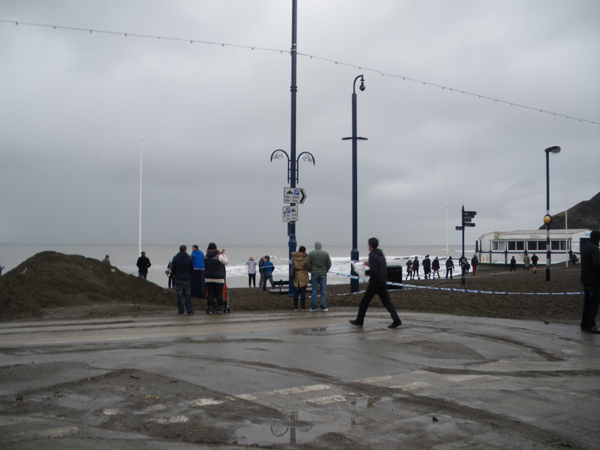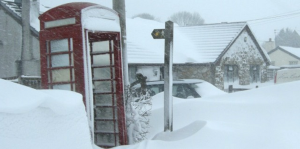
February 23, 2014, by mjroyer
What is an extreme weather event?
This question, although it might seem simple, is actually harder to answer than could be imagined. If we take the definition of the American Meteorological Society, weather is “the state of the atmosphere, mainly with respect to its effects upon life and human activities.” Weather measurements usually include temperature, humidity, precipitation (e.g. rainfall, snowfall) and wind. Types of weather refer to a more specific group of “combined atmospheric phenomena that must be drawn upon to describe the local atmospheric activity at the time of observation.” (Wow! that is quite a mouthful.) Some examples would be thunderstorms, freezing rain, snow, hail, heat waves, etc. Therefore a weather event would be a type of weather that has taken place or is currently taking place.
But defining weather and weather events is the easy part. The hard part is figuring out what “extreme” means or should mean. The Oxford dictionary defines the word extreme as “reaching a high or the highest degree; very great.” Further uses can be “not usual; exceptional: very severe or serious.” We now have a definition, however it does not help as much as we would like because it raises the question: compared to what? And that is the crux of the problem. In all the existing definitions extreme weather is always seen as a departure from the norm. But that means that to be able to identify unusual or extreme weather you must be able to identify what is usual. Again there is no universal definition of what is usual weather as it changes over time and space. For example, I come from Montreal where getting half a foot of snow in a day is inconvenient but not too unusual. If this were to happen in Aberystwyth, people might be slightly more surprised or put out.
We are now going to add another layer to complicate matters. The above definition is the climatic one. When looking into archival records sometimes you are lucky and the author has recorded weather measurements (although changes in science and technology mean that this opens a whole new can of worms). If not, the severity of the event has to be inferred from other sources. For example, they might specify how many homes were destroyed and lives were lost, how much money was spent, the time of year the flowers bloomed. These can vary based on where and when the event occurs (e.g. city, field, village, modern times, resource rich area, poor area). The importance given by humans to a weather event will therefore also vary in time and space.
This means that to study extreme weather events in an area you must also study the area and time periods. You have to know the area well enough to know what is usual to be able to say what is unusual. And here is where community knowledge really shines. People who have lived in an area over a long period of time and especially when they take part in land based activities will often have a good understanding of local weather. They will know when something is unusual. So my question to you is what unusual weather have you observed where you live and why did you find it unusual?


Thanks for this Marie Jeanne. Your blog provides a very useful ( and timely!) insight into the complexities underlying the term ‘extreme’. It raises some really interesting questions in light of the way the media have been using the term recently. It also highlights how context (temporal, spatial, socio- economic, political, cultural and environmental) matters a great deal in terms of the way an event is experienced and also in the way people respond to such events. Our case study based, culturally and historically focused approach will illustrate this further.